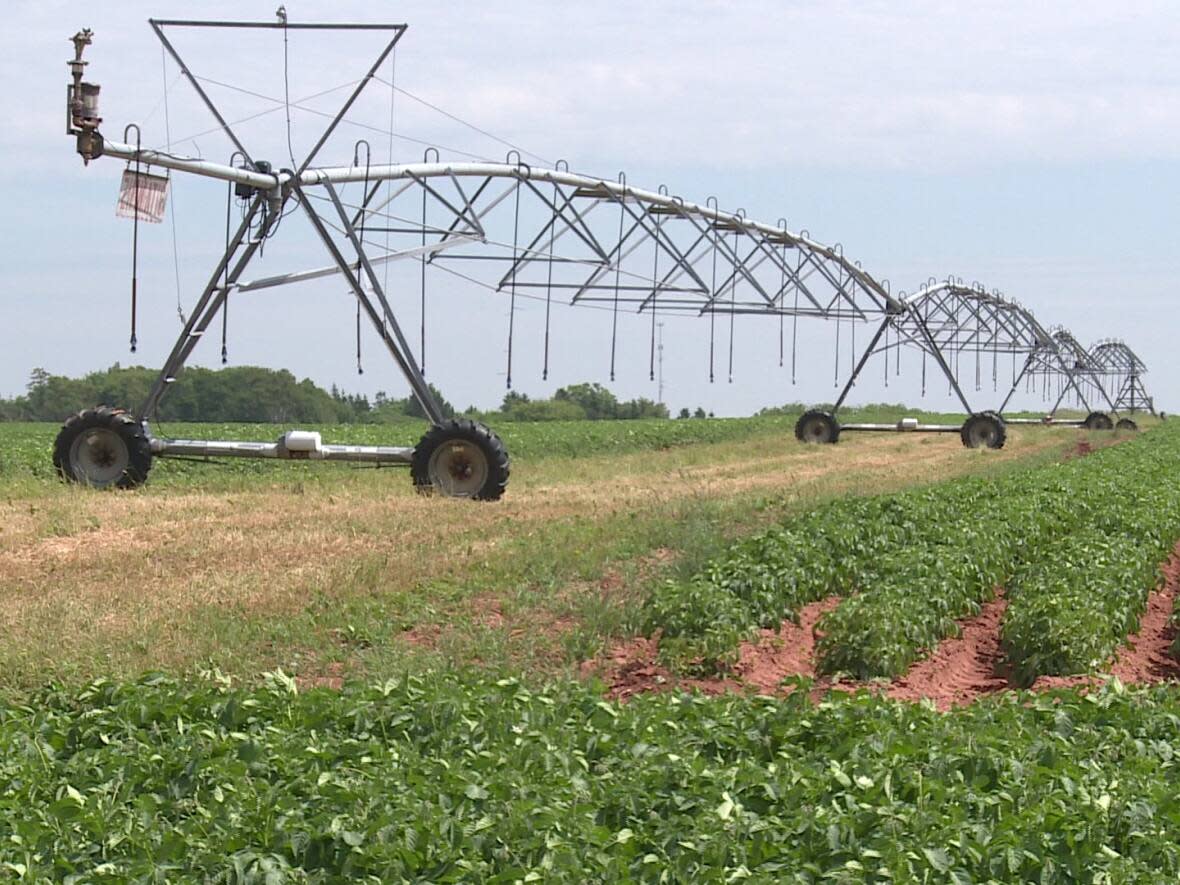Irrigation shows early promise for reducing nitrate pollution from farms

Preliminary research on P.E.I. farms shows that irrigating potatoes helps the plants better use nitrogen in fertilizer, so it doesn't end up leaching into the environment.
The research by the Living Lab Project — a partnership of Agriculture Canada, the East Prince Agri-Environment Association and the P.E.I. Department of Agriculture — is in its third year.
Provincial soil and water conservation engineer Tobin Stetson said the early field trial results are replicating results from previous federal research farm testing.
"It's not a groundbreaking phenomenon or anything," Stetson told Island Morning host Laura Chapin.
"It's just naturally that plants need water to transport photosynthesis and transport nutrients into their cells. And the synthetic fertilizer that is applied to the crop with supplemental irrigation is allowed to uptake more."
Because the plants are more efficiently taking up the nitrates in fertilizers, there is less left behind to eventually trickle into groundwater and rivers.
Early results
A recent study found nitrate levels climbing in some Island rivers. Excess nitrates can lead to algal blooms that consume the oxygen in the water, suffocating fish and shellfish.
The study currently has results from 2019 and 2020. Four farms are included in the research every year, with four test plots on each farm — three that are irrigated and one left as a control.
The trials have also shown farmers can get the same potato yield using 20 per cent less nitrogen if irrigation is used, which would save growers the cost of that fertilizer and be better for the environment.
Stetson said at this point the results are considered preliminary.
"That it is not long enough really to say we're done, but it's a nice trend to see in the beginning," he said.
Living Lab is currently planning four years of trials, but Stetson is hoping to continue beyond that.
Relatively few farmers on P.E.I. have irrigation systems. A moratorium on high-capacity wells for irrigation, in place since 2001, has recently been lifted.


